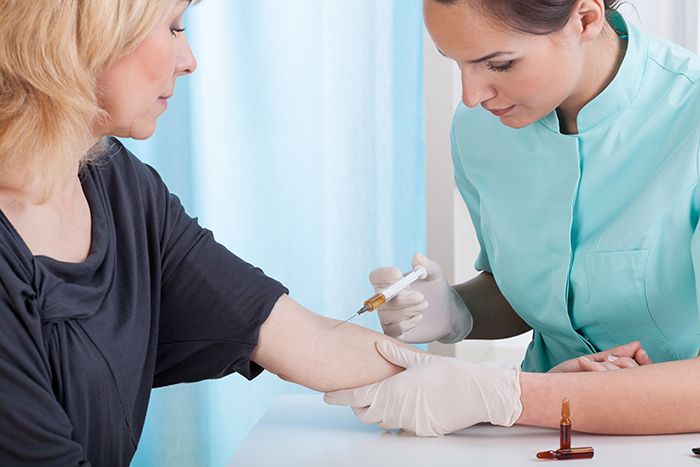
The high-dose flu vaccine normally given to the elderly could help middle-aged people with chronic health conditions such as heart disease, diabetes or cancer, researchers say.
“The growing proportion of middle-aged adults with chronic health conditions coupled with the modest effectiveness of the standard-dose influenza vaccine prompted us to explore whether existing vaccines already recommended for the elderly also could protect younger people,” said Jonathan Raviotta, senior research specialist with The Pittsburgh Vaccination Research Group (PittVax) at the University of Pittsburgh School of Medicine.
The recommendation to expand the use of high-dose vaccines was supported by a computer simulation model. The study's findings, published online in the medical journal Vaccine, call for clinical trials of the high-dose and new recombinant trivalent influenza vaccines in 50- to 64-year-old adults with chronic illnesses to determine whether they do provide better protection than the currently recommended standard-dose quadrivalent vaccine.
The high-dose influenza vaccine is recommended for adults over age 65 because their immune response to the standard-dose vaccine diminishes with increasing age. However, at almost double the price, it is more expensive than the standard-dose quadrivalent vaccine. To test the value of conducting large clinical trials of the vaccine in 50- to 64-year-olds with chronic conditions, Raviotta and his colleagues used the Influenza Decision Analysis model, which was developed by PittVax, to explore the cost-effectiveness of alternate influenza vaccination scenarios.
Because the circulating influenza strains can shift from season to season, annual vaccine effectiveness can vary widely. Also, the effectiveness of both the standard-dose and high-dose vaccines among middle-aged patients with different levels of chronic medical conditions is unknown.
Using the best available data, the PittVax team reported that the high-dose vaccine would need to provide at least 18 percent more protection than the standard-dose vaccine to justify the increased cost per dose. Previous clinical trials found an additional 24 percent effectiveness of high-dose vaccine over the standard-dose vaccine in the elderly, but it is not clear how much more effective the high-dose vaccine would be in younger adults with high-risk medical conditions. Likewise, a newer but even more expensive recombinant vaccine has shown an additional 41 percent protection among adults, suggesting that additional research of vaccine options for high-risk, middle-aged adults may be justified.
According to the U.S. Centers for Disease Control and Prevention, between 12,000 and 56,000 people die annually in the U.S. from the flu, and up to 35.6 million people are infected. This adds up to an estimated $10.4 billion a year in direct medical expenses and an additional $16.3 billion in lost earnings annually.
“PittVax will continue to test new vaccination scenarios to help guide flu immunization recommendations,” said senior author Richard K. Zimmerman, M.D., M.P.H., professor in Pitt School of Medicine’s Department of Family Medicine and Pitt Graduate School of Public Health’s Department of Behavioral and Community Health Sciences. “These analyses are essential to choosing the best immunization policies that save lives from influenza, which kills thousands annually.”
Additional authors on this study are Kenneth Smith, M.D., Mary Patricia Nowalk, Ph.D., R.D., Angela Wateska, M.P.H., all of Pitt; Jay DePasse, B.S., Shawn Brown, Ph.D., of the Pittsburgh Supercomputing Center at Carnegie Mellon University; and Eunha Shim, Ph.D., of Soongsil University in Seoul, Republic of Korea.
This project was funded by National Institute of General Medical Sciences grant R01GM111121.
Flu Vaccine Used in Elderly May Benefit Middle-Aged Adults with Chronic Conditions was originally published on the University of Pittsburgh website.